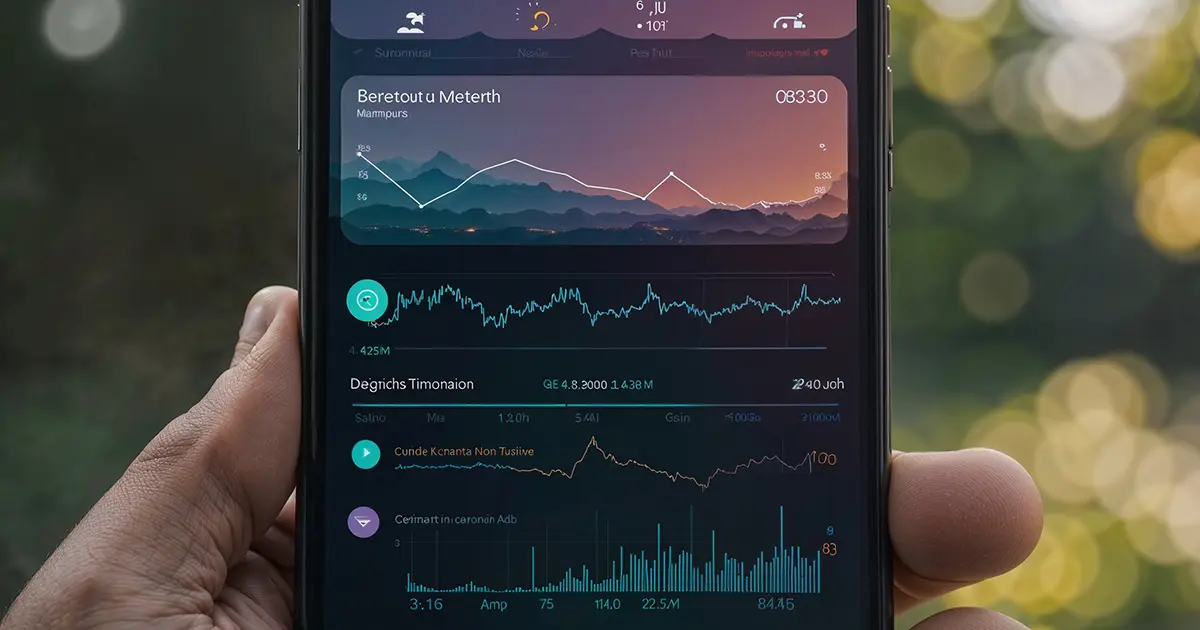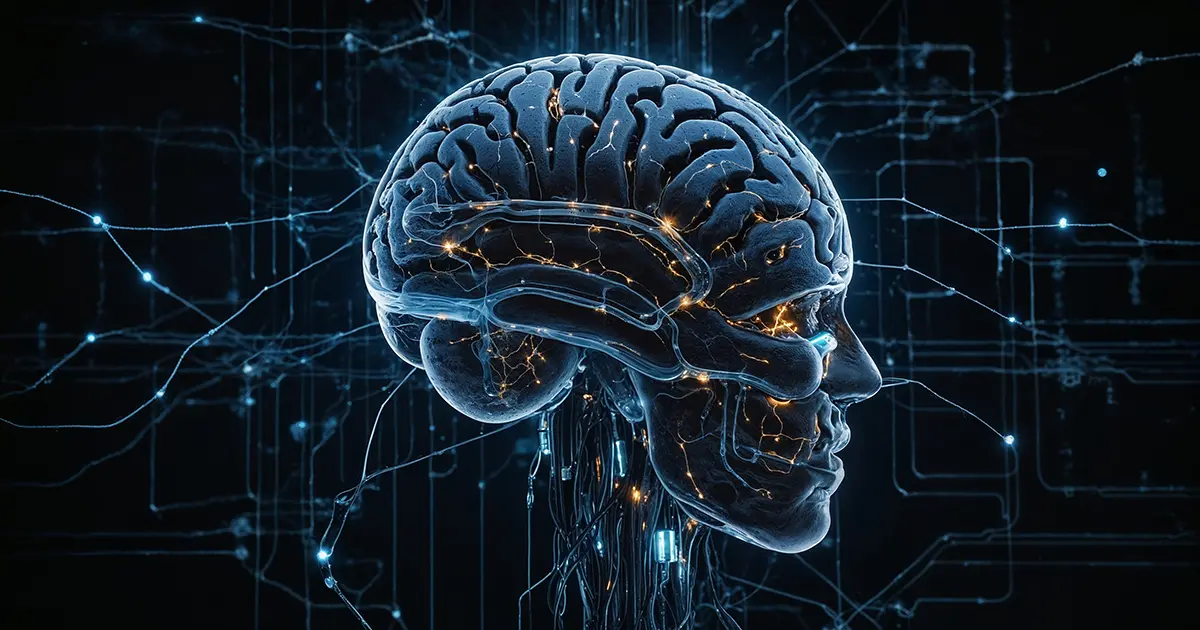AI for Mental Health: Simple Solutions for Everyday Life
Artificial intelligence (AI) is transforming psychology and mental health care, offering new ways to diagnose and help. Through accessible apps and online services, AI is helping people manage everyday tasks and improve their lives.
Understanding the role of AI in psychology
As technology evolves, artificial intelligence (AI) is becoming a critical part of our daily lives, including the field of psychology. Modern AI systems can analyze vast amounts of data to help us better understand our emotions and behavioral patterns. For example, Woebot, developed by Stanford psychologists, is an AI chatbot designed to provide emotional support and guidance. Woebot doesn’t replace a professional therapist, but it helps users manage negative emotions and teaches simple methods for controlling stress. This smartphone app makes it easy to access support whenever someone is feeling anxious or down. Woebot is especially useful for those unfamiliar with mental health services because it is easy to use and designed to help in everyday situations.
AI as a tool for mental health support
AI systems have become reliable tools for mental health support. For example, platforms such as Talkspace and BetterHelp allow users to connect with online therapists, removing the barriers of transportation and location. These platforms make professional help accessible to people who may be shy or hesitant to seek in-person therapy. With just a few clicks, users can install an app, select a therapist, and begin a session within minutes. These services are especially valuable for older adults who may have difficulty traveling or feel uncomfortable in face-to-face sessions. Talkspace and BetterHelp connect users with licensed therapists and offer different communication options, from texting to video calling, so people can choose the method that works best for them.

AI for emotional state diagnosis
AI isn’t just a support tool – it also plays an important role in diagnosing emotional states. For example, Mindstrong Health uses AI to analyze users’ behavioral patterns, such as typing speed, mouse movements, and daily activity levels. These data points help determine a person’s emotional state, even if they aren’t fully aware of it. For example, slower typing speeds can indicate depressed feelings, while increased activity can signal anxiety. These insights benefit both users and mental health professionals, providing essential data to make informed decisions. This approach is particularly useful for people who are unsure about seeking professional help, or who simply want to monitor their mental health.
Using AI to improve social skills
AI can also help people who find it difficult to build relationships or openly discuss their feelings. The Replika app is designed to act as a “friend” to the user and engage in conversations about various topics, including personal thoughts and feelings. Replika analyzes responses to offer phrases that help users express themselves. For example, someone with social anxiety could practice discussing their concerns with Replika before engaging with others. Replika provides a safe space to build confidence in social interactions. The app supports multiple modes of communication, including text, voice, and even video chat, making it an accessible tool for people looking to improve their communication skills.
Managing everyday stress with AI
Several apps help users combat everyday stress with AI-based techniques. Popular platforms like Calm and Headspace offer meditation, breathing exercises, and stress management courses. These apps are ideal for beginners because they’re easy to download to a smartphone and have a simple interface. Calm, for example, offers relaxing music and audio sessions to help you unwind before bed. Headspace offers a series of daily activities to promote relaxation and focus. Both apps offer free versions so that first-time users can explore and benefit from these practices. These platforms are especially valuable for older adults, who may face increased stress due to life transitions and new challenges.
The role of AI in sleep and rest
Sleep disorders are a common problem for many people, often associated with stress or anxiety. AI can help improve sleep quality and overall well-being. For example, Sleep Cycle analyzes sleep stages and tracks movement to determine the optimal time to wake up. This feature helps people avoid morning grogginess. Another app, Sleepio, offers personalized guidance for those with chronic sleep problems, providing tips and advice. These tools are helpful for all ages, especially older adults, as they offer easy-to-follow advice on how to achieve a restful night’s sleep.
Practical tips for getting started with AI apps
To get started using AI for mental health, try these simple steps:
These apps have intuitive designs that make them easy to use, even for those who are entirely new to AI. Users can quickly grasp basic functions that will help them feel more balanced and in control.
AI and the future of mental health
AI is already transforming how we approach mental health. In the future, AI is expected to become even more personalized, offering support tailored to individual needs. For example, Ginger is working on flexible AI models that adapt based on users’ current emotional and mental needs. These models create new possibilities for those who want help but may not feel comfortable visiting a therapist in person. AI-powered apps are becoming not only convenient but also widely accessible, making mental health a priority for people of all ages.

Top 10 AI Apps for mental health and well-being
- Woebot: An AI chatbot designed to help users manage negative emotions and practice stress-relief techniques in a supportive chat environment.
- Talkspace: Offers online therapy sessions with licensed therapists, allowing users to communicate via text, audio, or video.
- BetterHelp: Provides virtual counseling with professional therapists, making therapy accessible from anywhere at any time.
- Mindstrong: Uses behavioral data, such as typing speed and activity levels, to monitor mental health and identify signs of anxiety or depression.
- Replika: An AI friend who engages in conversations on personal and emotional topics, helping users improve social and emotional skills.
- Calm: Offers guided meditations, relaxing music, and breathing exercises to help users reduce stress and improve sleep quality.
- Headspace: Provides daily mindfulness exercises and courses on managing stress, anxiety, and achieving focus.
- Sleep Cycle: Tracks sleep patterns and wakes users at the optimal time in their sleep cycle, promoting a more restful awakening.
- Sleepio: A sleep improvement app that offers customized sleep guidance and therapy for those with chronic sleep issues.
- Ginger: Combines AI and human coaches to provide personalized mental health support based on the user’s current needs.

















